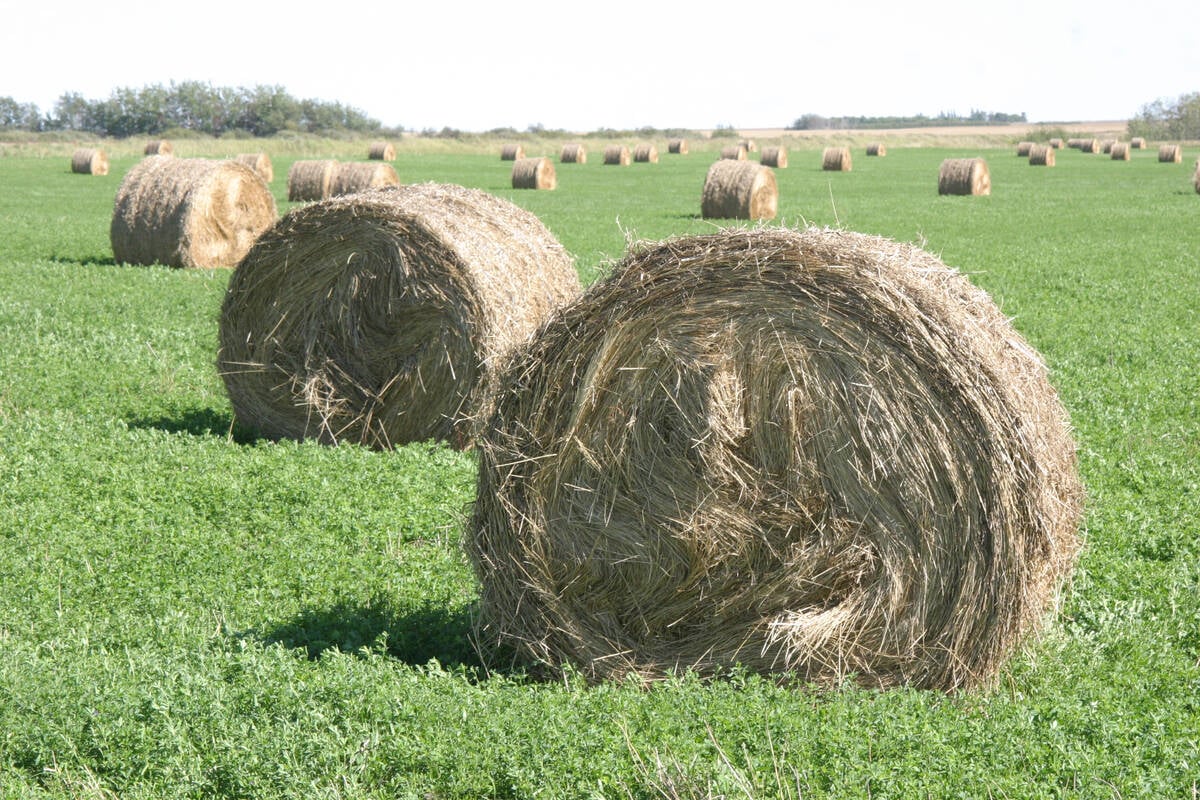SUNDRE, Alta. – As he reminisces about his experiences as a construction boss in the oil patch, a chuckwagon driver, a horse trainer and a wagon builder, Lorne Sharkey reveals a life full of friends and adventures.
His fingers are bent with arthritis and old injuries and his step is probably slower than it used to be. But at 73, Sharkey says he has no intention of slowing down and he’s glad retirement has turned out this way.
“I enjoy it or I wouldn’t be doing it,” he said.
Read Also

Breaking down successful winter feeding into six steps
It’s that time of year when it is important to start planning for a cow herd’s winter feeding program. Here are six steps I think are necessary to consider when getting your feed tested.
Sharkey retired from the Alberta oil fields in 1975 and fills his days building wagons for hunting and camping outfitters, making harnesses, training teams of horses and driving wagon loads of supplies into remote summer campgrounds along the eastern slopes of the Rocky Mountains.
He has had some major accidents – he has even been laid up for months with little hope of getting back on his feet. Sheer determination and a love of what he does got him out of a hospital bed and walking again.
“I’ve had a few wagon upsets. It gets to you when you get older, but I’ll never quit,” he said.
The worst was getting entangled and dragged by a runaway wagon that damaged his knee, back, ribs and hip. Sharkey spent six months recuperating in hospital and ended up on crutches, which he took along on his next trip to the mountains.
A brush with cancer two years ago sidetracked him, but recent checkups show everything is in good shape.
The camping trips start July 20 and run till the end of September. The trips are about 160 kilometres from his Sundre Alta., ranch and require long days with a lot of stamina for the driver and the horses.
American hunters and campers travel into these remote areas where no vehicles have been allowed since 1983. Skilled wagoners like Sharkey are in demand because it’s hard to find people able to make the trip and come out unscathed. Often, the only way to rescue casualties is by air ambulance.
During winter and spring, Sharkey builds wagons and trains and sells five to seven teams of horses a year.
He used to work with Belgian-Percheron crosses but now favors a Belgian-Morgan cross because they’re smaller and sturdy. He buys a number of colts from pregnant mare’s urine farms
He has provided horses and carts for television and movies including Lonesome Dove, which was filmed west of Calgary several years ago.
To drive a fine team of horses, proper harnesses and collars are needed. Sharkey makes harnesses in his leather shop fitted with special collars from the Amish in Ontario. He keeps about 30 collars on hand and has sold 15 sets of harness so far this year.
When he’s not working with horses, Sharkey builds six to eight wagons a year, which are sold mostly to outfitters.
The first wagon he built for mountain work fell apart and had to be hauled out on skids. He has since learned how to build better wagons out of metal and wood.
Much of what he builds comes from scavenged parts from auto dealers and friends. The wagons travel over rough ground so he installs car seats for comfort and hydraulic brakes in the back.
He uses 15 or 16 inch truck tires with tubes for the wagons that can travel over rocks. Each is fitted with a traditional canvas cover.
One of his latest projects is a horse-drawn camper trailer that includes a heater, propane stove and water system. This customized unit needs a four-horse team to haul it and Sharkey intends to use it for his personal pleasure.
In addition, he has made small carts for pleasure driving and small wagons that can be used on a farm for hauling calves or taking minerals out to a pasture.
His sleighs are made with snowmobile skis attached to tire rims.
Sharkey has three sons and two daughters. One of the sons, Tom, and his 14-year-old son Rory, have taken over running the ranch and it is Sharkey’s hope that his grandson will continue the business.
Last year Sharkey bought a lifetime registration for his lazy S brand and listed himself and young Rory as the owners to keep this legacy in the family .
“I’d hate to see it all die,” he said.















